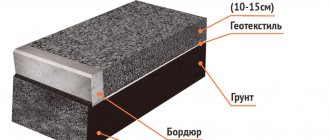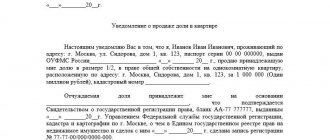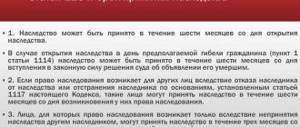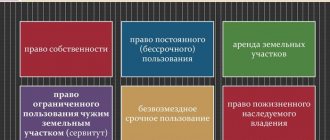What it is?
These are lands intended to ensure the operation of organizations and enterprises, for the operation of facilities that are sources of energy supplied to organizations and populated areas. They carry out work that carries increased danger, so there are special security zones here, which are also included in the designated category.
Such memories are provided for the following:
- placement of hydroelectric power stations, nuclear power plants, thermal power plants and other energy enterprises;
- use of electric grid facilities;
- enterprises serving them;
- radioactive waste dumps.
The listed and similar types of work permitted in designated areas are regulated by the provisions of Articles 87 and 89 of the Land Code of the Russian Federation.
Concept and general characteristics
Designated lands are an object of land real estate allocated by the state to the following participants in land relations:
- municipalities;
- enterprises and organizations;
- service providers.
It also acts as a type of designated purpose, directing the owner of the land plot to use the land only for energy needs, or for related activities for the operation of energy enterprises or the electric grid.
Such lands must have appropriate characteristics related to the form of exploitation:
- be located outside the city, except for network facilities;
- be surrounded by a security zone;
- prevent flooding from adjacent bodies of water;
- not be located in agricultural areas;
- do not occupy areas of soil with high fertility and other unique properties.
Due to the increased danger, such areas should be marked with special signs that are not allowed to be removed or moved by yourself.
Special permission lands also include other categories of plots, about which we have prepared separate articles. Learn about lands for space activities, transportation, defense and security, communications.
A right-of-way has been created in Europe
Photo: Alexander Chizhenok / Kommersant While Gazprom is breaking records for gas supplies to Europe and is looking for a new strategy for operating in the region, consumers are increasingly distancing themselves from the monopoly. However, they are no less wary of the EU authorities’ attempts to consolidate the market within the energy union. Other gas suppliers, which Europe usually calls alternatives to Gazprom, such as Algeria and Iran, contribute to the feeling of mutual hostility; they are not at all eager to sell gas to the EU. A Kommersant observer observed the expanding atmosphere of alienation in the European energy market during a conference in Berlin.
Three weeks after Gazprom head Alexey Miller outlined a new European strategy in Berlin on April 14), another conference was held there. On the eve of Victory Day (which Europeans celebrate on May 8), Deputy Head of the European Commission Maros Sefcovic, Special Representative of the US State Department for Energy Amos Hockstein, and the Energy Ministers of Azerbaijan and Iran Natig arrived in East Berlin, previously hung with flags of the anti-Hitler coalition, at the invitation of the head of the Munich Security Conference Wolfgang Ischinger. Aliyev and Bijan Namdar Zangane, as well as an impressive Ukrainian delegation.
There was no one from Gazprom; the Russian side was represented by the head of the State Duma Committee on Energy, Ivan Grachev; in general, the composition of the participants turned out to be distinctly anti-Russian. There was a certain irony in the fact that the building of the former State Council of the GDR was chosen for the conference: in what was once the westernmost European outpost of the Soviet empire, plans were discussed on how to end, according to the unofficial definition of one of Kommersant’s interlocutors, the “relic of the Soviet occupation” - dependence Europe from Russian gas.
Only a few politicians uttered such maxims out loud, but the mood of German business representatives was very reminiscent of the Cold War. In their speeches, they tried to avoid any direct mention of Russia at all in the context of their companies' plans (which was not easy, given the topic of the conference). Unofficially, Kommersant's interlocutors admitted that they have no plans to develop business in the Russian Federation; rather, they are talking about leaving the country. “We do business with Russia, buy gas, and everyone knows it, but now there’s no point in talking about it out loud again,” insisted one of Kommersant’s interlocutors.
Such conversations usually ended on a positive note. Like, sooner or later the relationship will improve. Some day. Not soon.
But European business is also cool about the actions of its own authorities. Maros Šefčović’s latest description of future benefits from the EU energy union (see Kommersant on March 23 and April 21) was met with very neat in form, but harsh criticism from business. The head of the Federation of German Industrialists, Ulrich Grillo, noted that the liberalization of the EU energy market is still far from complete, spoke out against government intervention in the energy sector, including in the form of subsidies for renewable energy, and compared the idea of an energy union with the construction of a tunnel under the English Channel, where from the first It took more than a hundred years for the concept to be realized.
The position of German politicians regarding maintaining energy relations with Russia ranges from wary to downright hostile. The head of the Foreign Policy Committee of the Bundestag, Norbert Röttgen, openly stated that Germany is interested in a “united Europe” and a transatlantic partnership in energy. “We must be aware of our responsibility (in the context of the Ukrainian crisis. - Kommersant"
), since this is not only about Ukraine,” he added. “If anyone in Russia still has illusions that German business will have doubts when choosing between cooperation with the United States and cooperation with the Russian Federation, then it’s time to abandon them,” a European diplomat told Kommersant.
At the same time, Europe still does not have a clear and unified policy to reduce purchases of Russian gas in the foreseeable future. The conference announced the same set of measures that have been talked about for the last 15 years - increasing the share of renewable sources, increasing energy efficiency and supplies from the Middle East. To illustrate the reality of the latter option, which politicians (but not business) are counting on very much, the Iranian Oil Minister came to the conference. However, he directly stated that the country is going to sell its gas in the form of LNG and Europe will have to compete for it with Asia. “Prices on the European market are not very attractive,” the minister explained. The representative of Algeria agreed with him, noting that Europeans have been trying to shift all risks to suppliers in recent years, so the priority for the country is the development of LNG.
Regarding the effectiveness of renewable sources, debate continues both between different EU countries and between politicians and businesses. Germany has made green energy a centerpiece of its energy policy (Energiewende), but one major German energy company compared its return on investment to NASA's lunar program. In fact, as Friedbert Pflueger of King's College London noted, Europe will most likely have to increase purchases of Russian gas in the coming years due to a reduction in its own production.
But if the EU's strategy for Russian gas appears unclear, Russia's own strategy is even less clear. Ivan Grachev, speaking at the conference, once again proposed applying the principle of “three keys” to the Ukrainian gas transportation system - joint management of the pipeline by companies from Ukraine, Russia and the EU. This seemed quite unexpected, given that Ukraine had adopted a special law prohibiting companies from Russia from participating in the management of the Ukrainian gas transportation system, and Gazprom had already announced that it was going to stop transit through Ukraine by 2020. Instead, the Russian company is planning to build a bypass gas pipeline to the EU, although European authorities have made it clear that they do not support the project and have the ability to block it. Thus, the situation is going to the point that in 2020 Gazprom will violate its long-term contracts, and Europeans will be left without gas, which they will still need. In mid-April, Alexey Miller called on the Europeans to discuss a new model of relations, but so far there have been no real attempts at dialogue on either side.
Yuri Barsukov - Newspaper "Kommersant" No. 83 dated May 15, 2015, p. 7
What is included in this category?
Energy lands are a type of permitted use, being part of the category of industrial and special purpose lands. The right to use them arises among subjects, participants in land relations, due to the type of activity that corresponds to the goals of the energy sector.
Divided into types of use:
- zones of location of industry enterprises;
- lands used for the location and operation of electrical grid facilities;
- landfills and industrial waste disposal sites.
The lands under industrial enterprises provide for the location of such large energy enterprises as the following:
- hydroelectric power stations;
- Atom stations;
- heating stations;
- nuclear installations;
- objects and structures that serve energy enterprises.
The land under industrial enterprises occupies vast territories. As a rule, close to this territory there are areas of settlements where enterprise personnel live. Mandatory requirements are the presence of an intermediate security zone that cannot be occupied for development.
The exploitation of the lands of the protective zone occurs only on the basis of Government decrees and orders, where regulations for the use of the protective zone are established separately for each enterprise.
The category and intended purpose of the landfill used as a security zone is not taken into account.
Land plots intended for the needs of the electrical grid can be allocated not only from special-purpose lands, but also from lands of other categories, since they are intended to serve populated areas and agricultural complexes, providing them with electricity. Their separation from other categories occurs on the basis of a land surveying project.
Allowed to be used in accordance with established operational safety measures. Be sure to take into account the norms of maximum and minimum load on power lines, observing the regulations for the use of the earth's surface for underground communications, as well as when installing a certain number of supports when laying overhead power lines.
Storage facilities used for storage facilities include structures for storing nuclear materials and radioactive substances, which requires their location in specially designated areas remote from settlements and agricultural areas.
This type of site also includes landfills used as radioactive waste dumps. When organizing them, sanitary standards are applied, obliging the formation of exclusion zones and appropriate security measures in order to avoid the spread of radiation into the human and natural environment.
Who needs longreads and who doesn't?
Initially, longreads were used in printed publications such as newspapers and magazines. In the last 5-7 years, they began to actively appear on the Internet. They are written on those sites whose content includes interesting, relevant and insufficiently covered topics in their field.
Longread writing is necessary for those sites that want to develop, want to increase the level of trust in the content from the target audience and occupy the top lines of the search.
The format is suitable for sites where you need to convince the reader to buy a product, take part in a certain event, etc. Longreads are an effective marketing tool for influencing the target audience.
Not only journalists and copywriters, but also many bloggers come to improve the quality of content. Today, long material can be posted on almost all social networking sites. This way you can attract attention to your account or blog.
Longreads should not be used in the following cases:
- the site’s target audience is not ready to read long articles;
- the theme of the site does not provide for the possibility of posting longreads on it;
- the site is successful, and there is no need to develop it or change anything.
Legal regime and position
In addition to the Land Code, the rules for the use of such areas are regulated by Government Decrees, Federal laws, regulations and local orders. The use of land and compliance with safety and environmental measures are subject to systematic supervision. It is carried out by the Rospotrebnadzor Services, SES, Ministry of Emergency Situations and other authorized authorities and departments.
The main control and supervisory authority is the Department for Environmental, Technological and Nuclear Control.
Based on statements and complaints from citizens, inspections are carried out to ensure compliance with the standards for the safe use of such lands.
The legislation regulates the installation of special security zones for the purpose of:
- maintaining safe operation of power plants;
- ensuring trouble-free service of energy facilities;
- safety of their operation for the population and the natural environment.
The specially issued Federal Law “On Environmental Protection”, in Articles 40, regulates the basic rules regarding protected zones:
- determines the procedure for their establishment;
- asserts their boundaries;
- determines the conditions for the use of memory devices located within their limits.
Objects and enterprises necessary for servicing populated areas are located on territories allocated from the lands of populated areas by special order.
Who is the owner?
The owner of the land can be either the state or a municipal entity, to which the tracts are transferred for permanent, indefinite use. But in this case, the municipality gives a full report to government agencies that oversee their intended use and compliance with the rules and regulations of operation.
Founders from among the legal entities servicing electric grid facilities can also act as owners of land if it was acquired with funds from the authorized capital.
Protected zones or areas used for transmission line supports may be withdrawn by the municipality in connection with government needs, by replacing the land plot or purchasing it. In some cases, land plots belong to legal entities or individuals, and they are subject to an encumbrance in the form of a public easement.
Permitted and prohibited use
On such lands it is possible to build industrial enterprises that satisfy the energy needs of a locality or state. It is unacceptable to develop infrastructure in the area where the enterprise is located; third party access to the enterprise territory is completely prohibited. It is allowed to create only the most necessary amenities for organizing the life of employees:
- canteens and buffets;
- shower rooms, toilets;
- change rooms and rest rooms;
- medical and pharmacy points.
When placing electrical grid facilities, depending on its type, unimpeded passage or passage may be permitted or prohibited.
But under no circumstances should you carry out work that may entail:
- underground cable damage;
- wire break;
- changing the position of the supports.
Such work may include both construction and cultivation of soil in undesignated places, as well as the passage of vehicles under transmission lines or near support poles, provided that damage to them is acceptable.
Management and monitoring
Land property management is a condition for the effective use of land resources. Conducted by federal and municipal authorized authorities, as well as by the Agency for Environmental, Technological and Nuclear Control. Officials and authorized persons, as well as proactive citizens making proposals, can take part in management.
Monitoring is an essential part of the management process, focused on the problem of the impact of the use of the massif on the ecological state of the environment. Monitoring is carried out by Rosreestr in accordance with Article 67 of the Land Code of the Russian Federation. Its tasks are as follows:
- study of the condition of soils used for energy purposes;
- studying the condition of soils used for protective zones;
- study of the condition of adjacent soils, the impact of ongoing work on them;
- obtaining data on the quality of the fertile layer;
- their contamination with radiation, the radius of its spread;
- the possibility of their further use for transport needs;
- the impact of industry activities on the surrounding ecology;
- the degree of effectiveness of continuing their intended use.
The received data is transferred to authorized authorities, where responsible decisions are made on the use of the land mass or on introducing changes in the procedure for its use. On the same basis, measures to protect the environment in adjacent areas are being developed.
Energy lands are governed primarily by Government Decrees, on which subsequent acts of legislation are based.
Documents for alienation
The following documents are required to be provided:
- extract from the Unified State Register of Real Estate;
- document of ownership (certificate, purchase and sale agreement);
- the result of the site examination;
- independent assessment;
- code of all owners of the object.
We invite you to read: Payments upon the birth of a child
| No. | Condition | Document |
| 1 | The owner is officially married, the property was acquired during the union | Certificate of marriage, consent of the spouse, certified by a notary |
| 2 | The citizen was previously married, the property was acquired during this period | Divorce certificate |
| 3 | The object/part of it belongs to a minor citizen | Birth certificates, permission for the transaction from the district guardianship department at the place of registration of the child or at the location of the property |
| 4 | The transaction is carried out not by the owner personally, but through a representative | Representative's passport, power of attorney |
Important! Collecting documents and their execution (notarization, obtaining guardianship permission) takes some time, so it is necessary to proceed with the transaction after receiving all the papers.
Is it possible to rent or convert to ownership?
This category of land is limited in circulation. Therefore, in no case is it permitted to transfer ownership or lease of land:
- used for the needs of nuclear and nuclear energy;
- for hydroelectric power stations;
- for atomic and nuclear storage facilities;
- for nuclear waste dumps.
Partial or complete purchase of land by the founders of electric grid farms, thermal power plants and companies representing related services will be allowed. As well as registering them for rent from the state or municipality.
It will also be useful to find out information about whether it is possible to transfer industrial land to another category, and vice versa, whether it is possible to transfer other types of land to industrial land.
Alienation of part of the land plot
When requisitioning part of land ownership, it is very important that the partial share cannot be objects of property rights. In other words, ownership of part of the land is only in the nature of obligations, but not property.
This all means that the property rights to part of the land are owned by the same owner who owns the entire plot in full.
In order to legally correctly formalize the transfer of part of land ownership, first of all, it is necessary to delineate the boundaries of the selected territory as an independent object of civil law relations. All necessary cadastral work to determine the territory of a part of the land plot is carried out by a body that is authorized to do this by law.
At the same time, the cadastral register must indicate information about the area of the land plot, define the boundaries, and also assign a personal cadastral number.
If property rights have not been registered for part of the land ownership, then such a property can only be the subject of a lease, mortgage or in the form of collateral.
Documents for alienation of land
In order to properly transfer land, it is necessary to provide a package of documents that are established by law.
This list includes:
- independent expert assessment of land allotment;
- mandatory monetary examination of land ownership;
- state act confirming the right of land ownership;
- a certificate from the cadastral register stating that there are no prohibitions on the alienation of this plot of land;
- a document that certifies that there are no buildings on the territory of this property;
- passports of all land owners;
- identification codes of all land owners;
- a marriage certificate is submitted if the seller of the land is in a family relationship;
- if the seller was married , then in this case a death or divorce certificate must be attached to the package of documents;
- consent of the husband (wife) to the alienation of the plot, drawn up in the form of an application;
- if children are owners of a land plot , then their birth certificates are also submitted;
- If the transaction for the sale of land ownership is carried out by a representative of the owner , then a power of attorney certified by a notary is required.
Having collected this package of documents, you can safely begin the process of land alienation.










